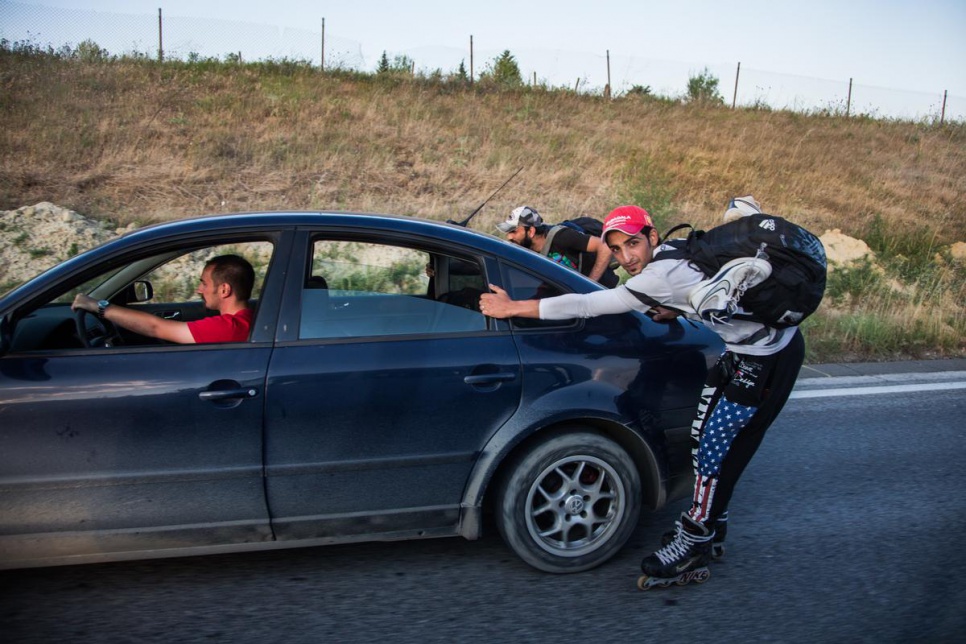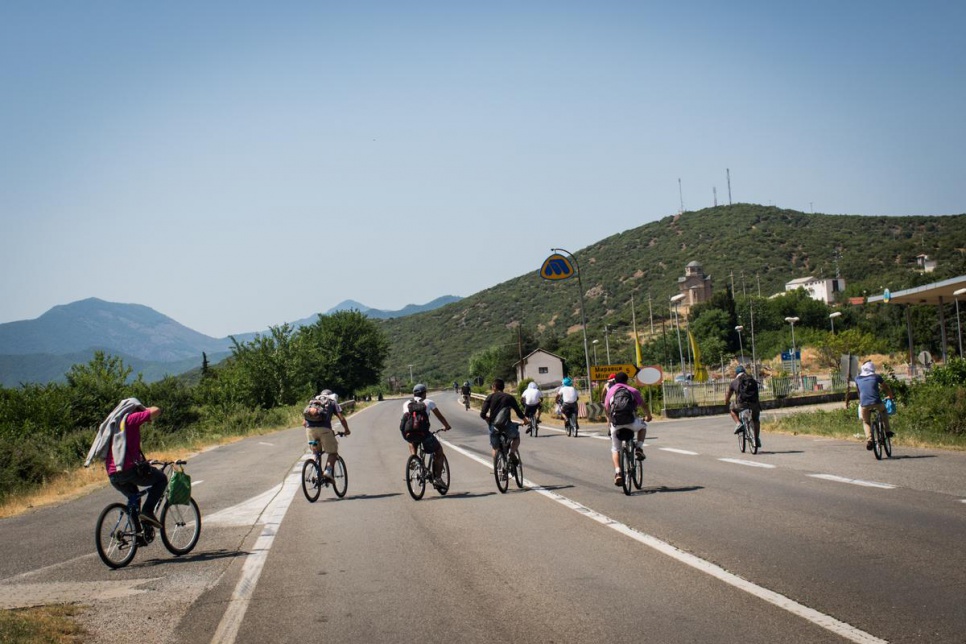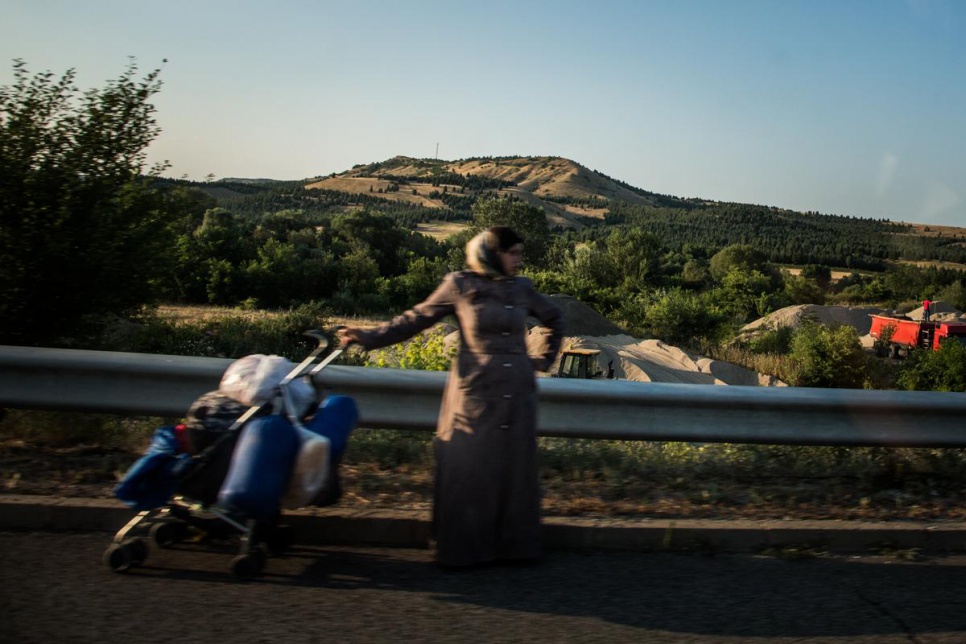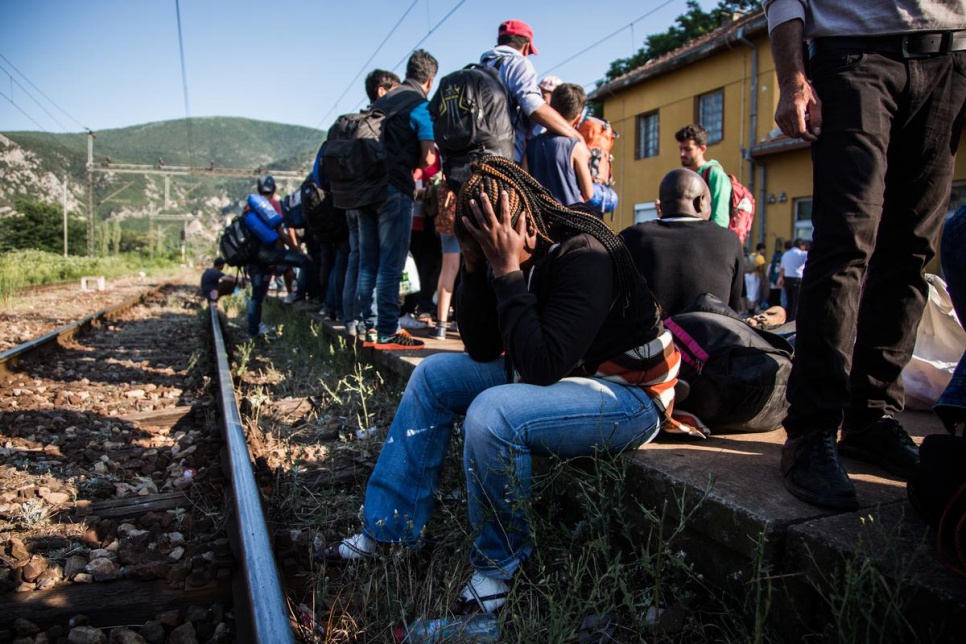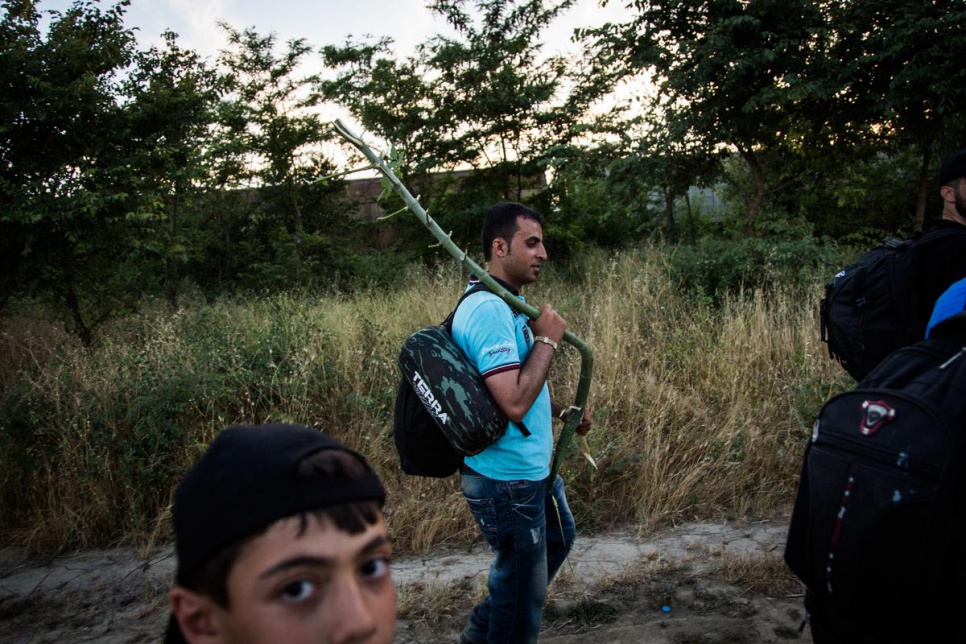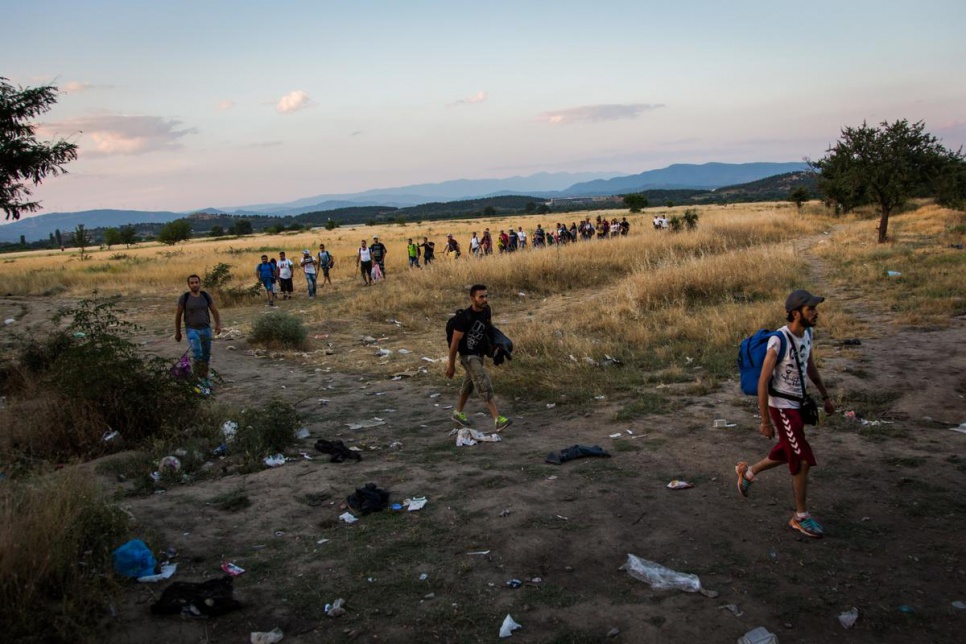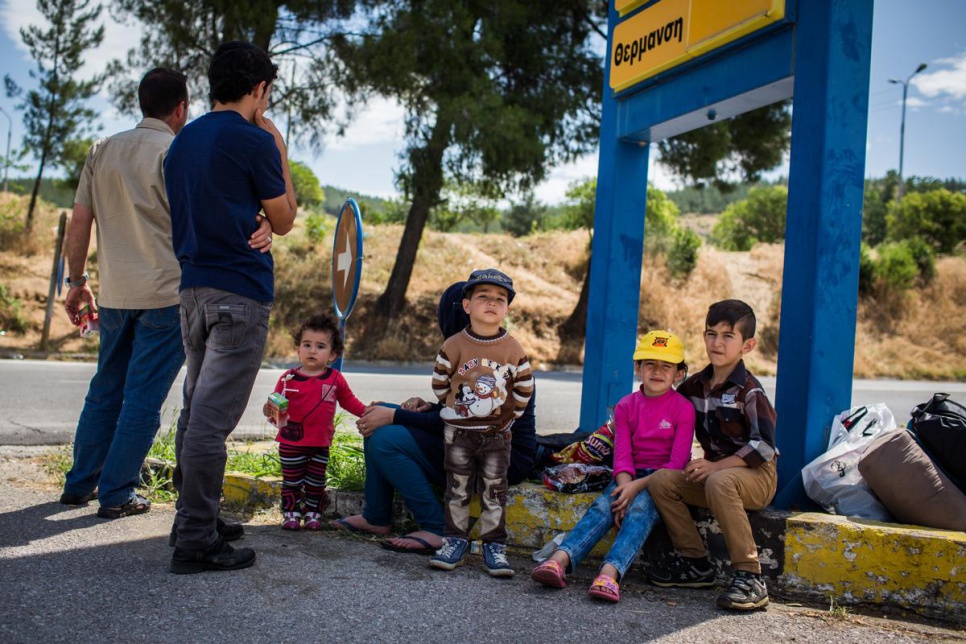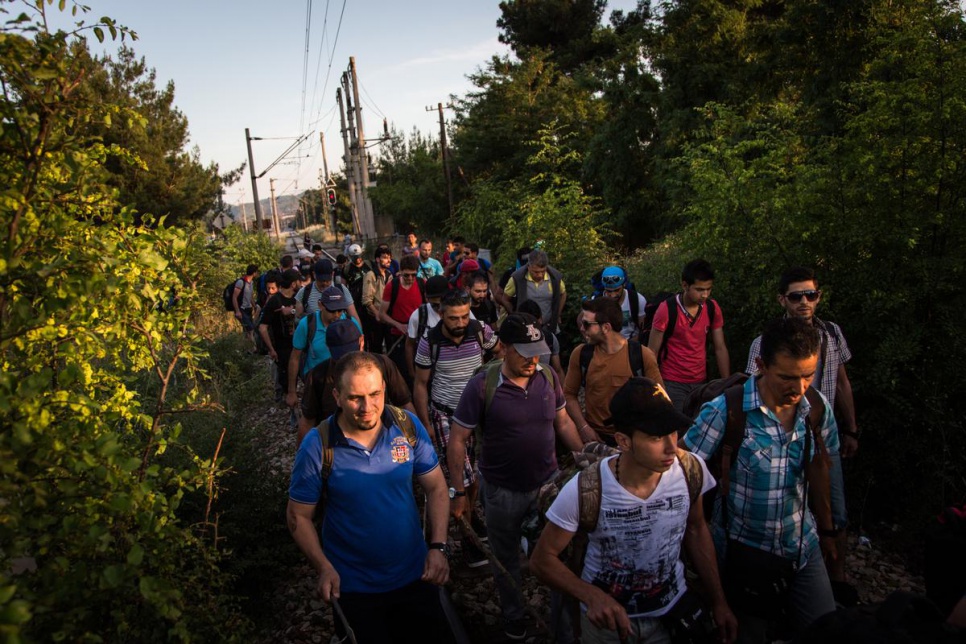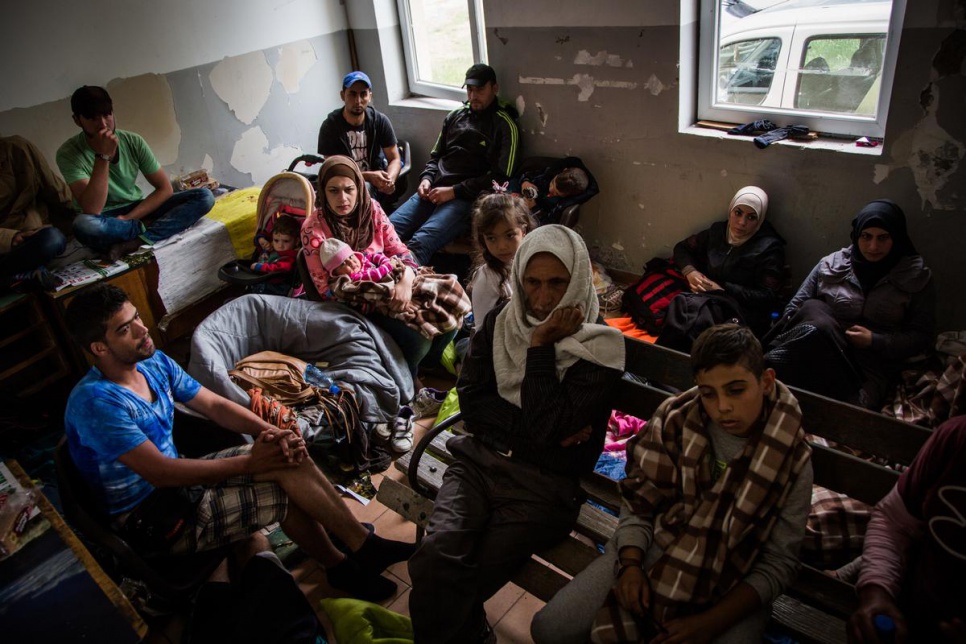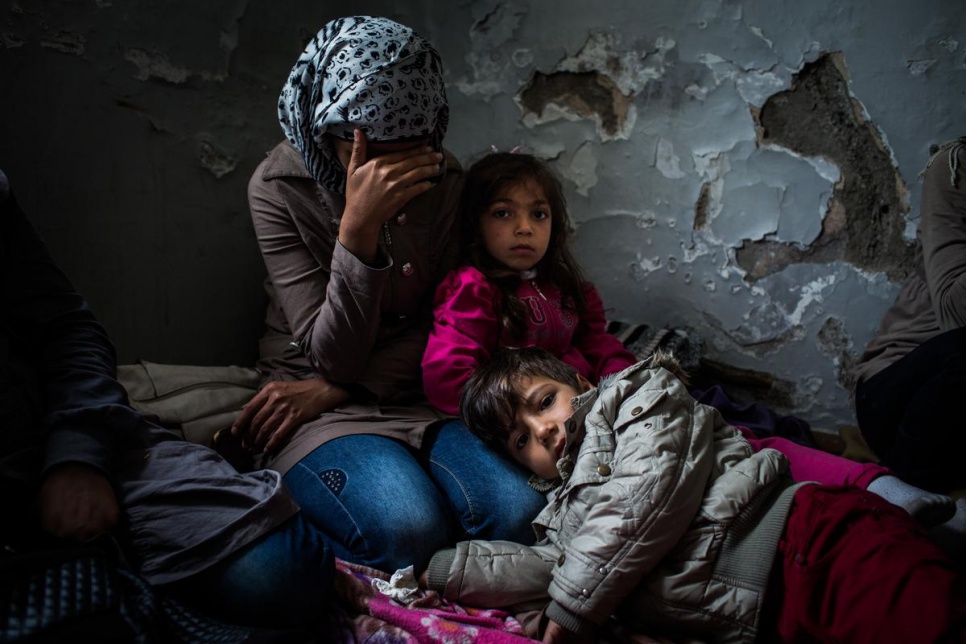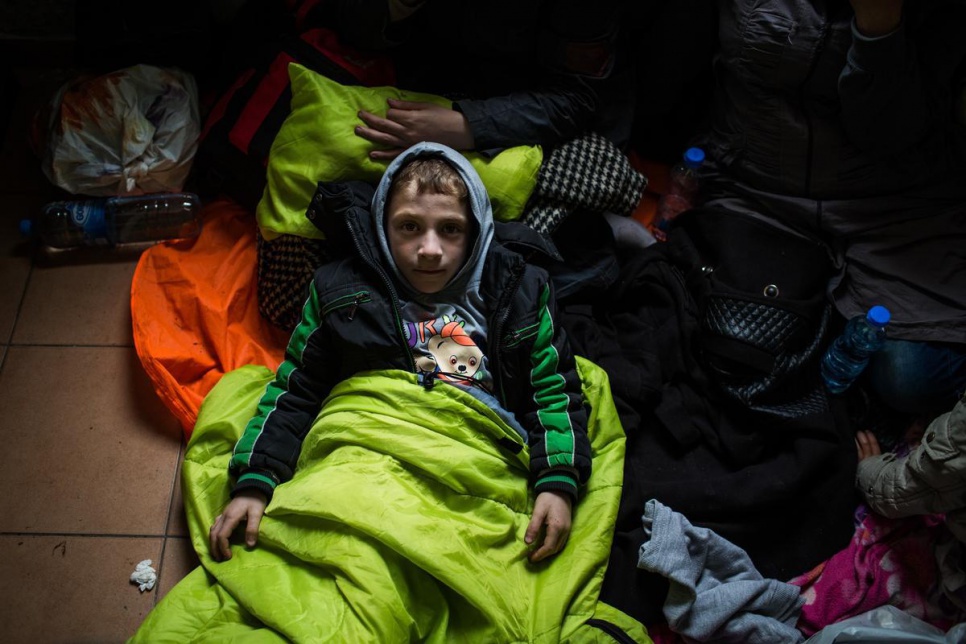A refugee triathlon
Since fleeing Syria, refugees have tried many forms of travel to reach safety – including hiking, biking and even rollerblading.
Siba and her husband, Fahad, rest in the shade after cycling north from the Greek border.
© UNHCR/Andrew McConnell
Sheltering from the heat, a young couple from Syria sits among the trees near a busy highway that cuts through The former Yugoslav Republic of Macedonia (fYROM). Siba and her husband, Fahad, are travelling among a group of roughly 30 Syrians.
Their rickety push-bike may have squeaky gears and a bum-bruising saddle, but it is the only route they have to healing Siba's scars. She balances on the bicycle's frame as Fahad pedals – cars, taxis and trucks thundering past.
The haphazard biking troupe is journeying north from the Greek border towards the frontier with Serbia. On the bike she must wear an ankle brace, but when they stop for shelter she gives the skin around her feet some time to breathe.
"I was injured by a very large mortar bomb," she explains with a smile, her eyes cast down at her tattoos of war. "I have shrapnel wounds all over my body. This journey has been long and very difficult, but I will not stop until we are finished. Of course it is difficult for Fahad to cycle with me on the bike but this is what we must do, we cannot go back to Syria."
"This journey has been long and very difficult, but I will not stop until we are finished."
Traversing an entire country this way was was not the couple's first choice. As they reached the border with Greece before 18 June, when a law was amended in The former Yugoslav Republic of Macedonia to authorize refugees to use public transport, buses were out of reach. With her injuries, Siba has difficulties walking any long distances. Biking was the next best thing – even though it cost the couple US $180.
The couple is not alone in their voyage on two wheels, which will run over 200 kilometres. The former Yugoslav Republic of Macedonia has witnessed a sharp increase in arrivals from Greece.
On some days as many as 1,000 people cross the border. Many are Syrians who crossed from Turkey to Greek islands like Kos and Lesvos before heading north towards their final destination. Many are hoping their journey will end in Germany and Sweden – the recipients of the largest asylum applications in the EU in 2014.
But crossing into The former Yugoslav Republic of Macedonia from Greece is not without risks. In the border town of Evzoni, people sit under trees waiting for darkness to fall so they can move on. While the shadow of the night presents refugees eager to continue their journey with an opportunity, the same shadows present criminal gangs with a chance to strike.
Refugees and migrants are often targeted as they carry cash and have little access to police protection. Fearing such attacks, many refugees stay in big groups, and cross the border in packs of 100 or more. Along the borderline, many trees are missing branches – signs that refugees are using whatever they can find to protect themselves along the way.
Like many others on the route, Siba and her husband have taken too many risks to let criminal gangs stop them from continuing towards the safety they dream of.
"I have seen many doctors and now I just want to keep going until we reach our destination," Siba explains. "I need a very special doctor to help me, the doctors in Aleppo [in Syria] operated on me but did not set the bones properly."
Before they cross from The former Yugoslav Republic of Macedonia into Serbia, Siba and Fahad will likely shelter in the train station in the northern town of Slanishte, and again wait for nightfall before dashing over the frontier.
"The children cry all the time and say they want to go back."
They will be walking in the footsteps of those who have come before them – people like Fatama and her two children Aya, 8, and Layth, 6 whose dad is still in Syria.
"I am scared to travel as a lone woman with no man to protect us," says Fatima, as she shelters alongside 400 other Syrian refugees. "The children cry all the time and say they want to go back. The most difficult part of our journey has been here in The former Yugoslav Republic of Macedonia."
Land on The former Yugoslav Republic of Macedonia side of the border may be running out for Fatima and her two children, but the problems are not. Reports indicate Serbian police pushed several hundred refugees back over the border into The former Yugoslav Republic of Macedonia on June 18 between the village of Lojane and the train station of Tabanovce. As a result, most of the refugees (including young children and pregnant women) had to spend part of the night and the day outside in cold and rainy weather.
"After today, we just want to get out of this place."
Mohammed, 27, from Damascus left Syria for Jordan two years ago. He is a software engineer making his way to Germany. "All my friends who arrived in Germany tell me you can [work there] and it is very good," he says.
The group he was travelling with were pushed back from Serbia three times in the course of a few hours. They had arrived at the border by train despite police efforts to keep them off the train.
"They made us get down then we got back on as the train was moving." Tired from the long journey, Mohammed puts it simply. "After today, we just want to get out of this place."

